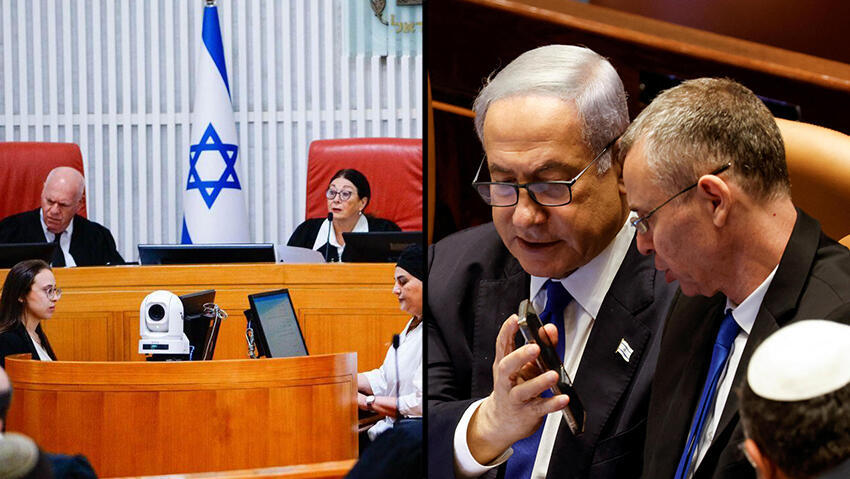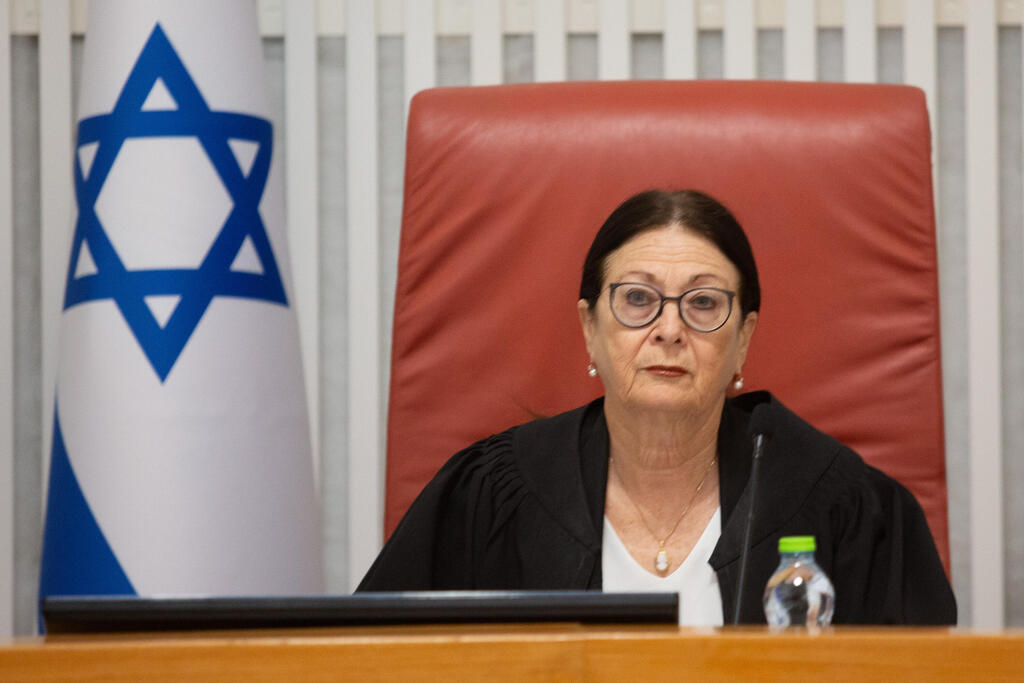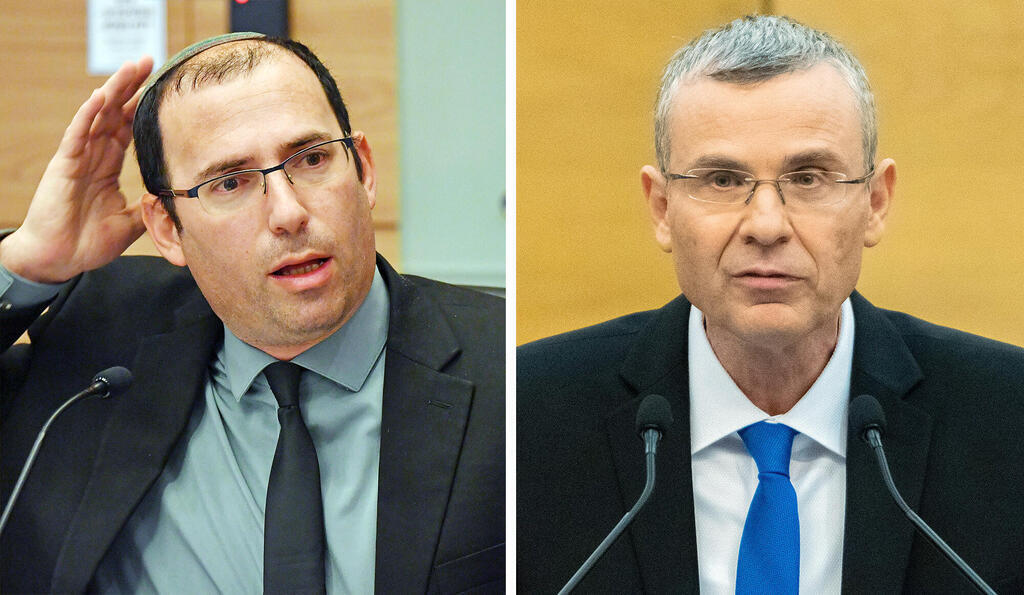The Supreme Court on Monday evening ruled to annul an amendment to a Basic Law that restricts its oversight of the government which was passed by Prime Minister Benjamin Netanyahu's government last July.
Read more:
The ruling reinstates the so-called reasonableness clause which grants the court oversight of government decisions. This marks the first time the court has ruled on one of Israel's quasi-constitutional Basic Laws.
3 View gallery


Supreme Court; Prime Minister Netanyahu and Justice Minister Levin
(Photo: Reuters/Amir Cohen, Shalom Shalom)
The majority opinion, passing by a narrow margin of 8 to 7, affirmed that the Basic Law annulling the clause "exceeds the Knesset's authority and therefore must be reversed."
According to recently retired Chief Justice Esther Hayut, "The Knesset's phrasing of the annulment is radical and extraordinary. It refers to the reasonableness clause's full measure, thereby preventing judicial review even in extreme and unreasonable governmental decisions."
The majority judges are: Former Chief Justice Esther Hayut, Justice Yitzhak Amit, Acting Chief Justice Uzi Fogelman, Justice Dafna Barak-Erez, retired Justice Anat Baron, Justice Khaled Kabub, Justice Ruth Ronen and Justice Ofer Grosskopf.
Invoking its authority to act, the majority opinion said, "Under extreme circumstances, the Supreme Court is authorized, under its mandate as the highest judicial authority in the land, to announce the annulment of a Basic Law when the Knesset exceeds its legislative authority."
Justices Noam Sohlberg and David Mintz affirmed that "this court has the authority to exact judicial review upon basic laws and intervene in extraordinary cases where the Knesset ventures outside its mandate."
Judge Yosef Elron, who was in the minority, wrote that "there is a certain window that allows for judicial review upon Basic Laws only in the most extreme of cases and only as a last resort. However, future Supreme Court cases will truly determine if the reasonableness clause has been completely annulled, or whether its remnants live within the framework of a reduced clause. This is a point where the executive branch has failed to articulate a consistent position."
'It robs millions of citizens of their voice'
Justice Minister Yariv Levin was displeased with the court's decision, saying: "The concentration of power in the hands of judges during court rulings undermines the balance of power among the three branches of government in a democratic system.
"When even the enactment of basic laws or decision-making in the Knesset and government requires the consent of Supreme Court judges, it robs millions of citizens of their voice and the essential right to participate equally in decision-making processes. This lack of equivalent checks and balances is uncommon in Western democracies. As the struggle persists on multiple fronts, we will remain committed to acting with caution and responsibility."
Chairman of the opposition and former Prime Minister Yair Lapid was more upbeat about the ruling, stating: "The court's ruling is the final act of a difficult year that tore Israeli society apart and led to our greatest disaster. Israeli strength stems from the fact that we're a Jewish, Democratic and law-abiding state. The Supreme Court fulfilled its duty to safeguard our democracy and it has our full backing."
Anticipating a possible governmental backlash, he added: "Should the Israeli government initiate another dispute regarding the Supreme Court, it would be evidence of a failure to learn from past experiences. It reflects a lack of lessons learned from the events of October 7 and the 87-day war fought to protect our homeland."
The government's legislative campaign to curb the Supreme Court's authority has caused an unprecedented rift within Israeli society and triggered a massive wave of protests around the country for the better part of 2023. The most prominent among those were the ones heavily criticizing the Netanyahu government. While those took place in countless locations nationwide, the one that drew the biggest crowds was the weekly protest in central Tel Aviv, which routinely drew hundreds of thousands every weekend.




